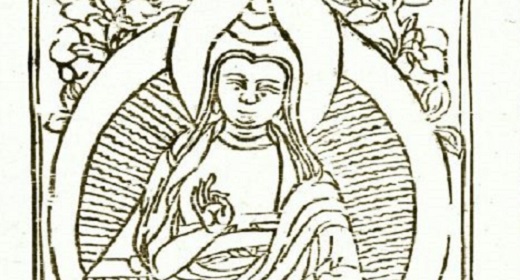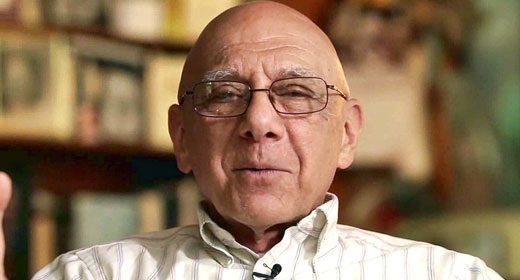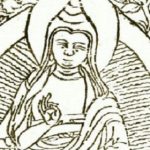In the 2010 November issue of History of Psychology, Stetson, President of the William James Society, reviews a century of research on William James and his work to mark the centenary of James’s death.
AHPasked Stetson about his work on James and about what readers can expect to find in his HoParticle.
AHP: How did you first become interested in William James?
PC: I was fortunate to have had a graduate education in an interdisciplinary field, American Studies. I would run into William James in each of my areas of interest: in the history of psychology, he was a founder of the scientific turn of the discipline; in philosophy, he was the most articulate of pragmatism’s founders; in religious studies, he “redrew the map” for thinking about religion in psychological terms; in cultural and intellectual history, he bridged academic and public discourse, and was even one of the first Americans to refer to “intellectuals” as a social class (“Social Value of the College Bred,” 1907, Essays Comments, and Reviews, p. 110).
Reading the scholarship on James, however, revealed a strange split: theorists of his psychology, philosophy, and religious thought paid little attention to his life and contexts, and biographers and historians told stories of his deep youthful crisis and impulsive personality often without reference to his theorizing. As a historian, I wondered about the connections between these strands of research: how did a person with such troubles produce an array of interesting and influential ideas? This set me on a path to learn about his intellectual development, not as something that happened alongside or in spite of his troubles, but as experiences emerging through them—after all, difficulties can contribute to learning. This took me toward a focus on the young James, the James before the James we knew—and I wanted to find out how his early experiences and ideas helped to shape his mature theories. In his roots, I discovered interrelations. Rather than choose sides, he learned from both science and religion, body and mind, and material and immaterial dimensions of life, and he sought to find their connections. This would allow him to circulate in many fields, even as his own deepest message is about their underlying relations.
AHP: As president of the William James Society, can you tell AHP’s readers a bit about the society and its activities?
PC: The William James Society is dedicated to support of scholarship and other work attending to his life, theories, and legacy. The Society sponsors sessions at scholarly conferences; upcoming events include a session at the American Philosophical Association on “James Across the Disciplines,” where I will present with scholars from three disciplines and three countries (Ramón del Castillo, Madrid; Loren Goldman, Chicago; and Emma Sutton, Wellcome Institute) followed by comments from Francesca Bordogna (Northwestern); and a graduate-student session at the Central Philosophical Association on the “Pluralistic Uses of William James” (Trevor Pearce, Western Ontario; Cecelia Watson, Chicago; Michael Dieciuc, independent scholar; and Trygve Throntveit, Harvard University).
The Society also sponsors the journal William James Studies (see:http://williamjamesstudies.org/), and recently organized the Symposium “In the Footsteps of William James,” with scholarly presentations and public intellectual events exploring his continuing impact in many fields. Held in August 2010 on the occasion of the hundredth anniversary of his death, in New Hampshire (where he died) and at Harvard (where he worked), the Symposium was cosponsored by the Chocorua (NH) Community Association and Harvard’s Houghton Library in conjunction with the James centennial exhibition “Life is in the Transitions.”
AHP: What is it about James and his work that has made him such an important intellectual figure?
PC: His colleague Alfred North Whitehead said he admired James because he combined greatness with simplicity. He was an innovator in many fields: his psychology texts synthesized the new scientific psychology and offered fresh expression of its insights; he expanded Charles Peirce’s pragmatism as logical method into a psychological portrait of the human mind thinking; he helped to launch the field of psychology of religion; and he complemented his pragmatism with the pluralistic metaphysics of radical empiricism. For all his intellectual sophistication, he had a remarkable capacity to understand and communicate with the average non-intellectual citizen. He was a switch hitter in his writing style ranging from technical philosophy to popular expression; and he was a bridge builder across fields of inquiry. He supplies a voice that is well worth listening to in our age of academic specialization and cultural polarization.
AHP: Can you share an anecdote or story about James that might be new to AHP’s readers?
PC: Some stories from his early years reveal his sense of humor, his tolerant spirit, and his emphasis on direct experience. When on a transatlantic voyage in 1873, he ran into a “lovely young missionary” who was setting out for work in Africa. The irreverent young James thought this “a fearful waste of herself,” but he was not tempted to criticize or argue with her. Instead, with tongue in cheek, he said “if I were a missionary, … I would choose … Paris for a field”—to which she responded “Oh! yes, there are fearful numbers of heathen there!” Saving his laughs for his letter writing, James heard out her convictions without further judgment; see The Correspondence of William James, 4:447.
When James founded the psychology laboratory at Harvard in the mid-1870s, he rubbed shoulders with natural scientists who were also teaching and directing laboratories. One day, chemist Charles Loring Jackson mentioned that when working with amyl nitrite, he and his students would begin “singing and laughing as though … drunk.” To James, this suggested clues about the relation of body and mind and even about some layers of mind beneath normal consciousness; to the chemist, that was a reason to treat that substance with caution and without further thought. By contrast, the budding psychologist, insisting on the power of direct experience, wanted to give it a try. He held a bottle of it gingerly, waved the gas toward his nose, and breathed in cautiously. He asked eagerly about any flushing of the face, but the chemist answered blandly, No. So he pulled the bottle closer and took a deep breath; it overpowered him as he staggered around the table declaring, “How queer I feel!” (Jackson in a letter to Ralph Barton Perry, who edited Thought and Character of William James, 1:359).
AHP: What are some of the most common misconceptions about James?
PC: James is often presented as an ambivalent personality with inconsistency of thought; perhaps the most common misperception is that his “will to believe” was a license to believe anything, and this is often paired with the view that his pragmatic theory of truth is that the truth is whatever works. These views of James are related and have their origins in various forms of dualism: for those who emphasize binary choice, including belief or skepticism, or timeless truth or relativism, James can seem indecisive, or if one is committed to a particular side of the dualism, he can seem like a compromising backslider. But James perceived that the facts of experience itself do not produce such stark depictions of the world based on single dimensions, so he described the interaction of these perceived divisions and focused on the emergence of beliefs and on truth in the making.
AHP: Given the immense body of scholarship on William James, where would you recommend someone interested in learning more about James begin?
PC: There are many good points of entry: for a kind of mental map about the relation of many different worldviews, “The Sentiment of Rationality;” for his psychology, Psychology, The Briefer Course, or for overviews of topics in the field, with special attention to applied psychology, Talks to Teachers; for connections between his psychology and philosophy, “Necessary Truths and the Effects of Experience” in Principles of Psychology; for his pragmatism, “What Pragmatism Means” in the lectures Pragmatism, or “Philosophical Conceptions and Practical Results;” for his pluralistic metaphysics, the chapters on “Percept and Concept” in Some Problems of Philosophy; for his justification of religious beliefs, “The Will to Believe;” for his own belief in the residence of spirituality in the depths of human consciousness, the “Conclusions” and “Postscript” of The Varieties of Religious Experience; for his general existential orientation, the essay “Is Life Worth Living?;” and for the flavor of his mind and a taste of his spirited writing style, most of the letters in The Correspondence.
There are also many good biographies; the most recent, William James: In the Maelstrom of American Modernism by Robert Richardson, is thorough and very well written; Louis Menand’s Metaphysical Club places James among his fellow pragmatist with lively stories.
AHP: Is there anything else you would like to tell AHP’s readers?
PC: James endorsed the insights of concrete lived experience, unmediated by habit, tradition, custom, institutional demands, or the voices of authority. For all of our relishing of individualism and personal expressiveness, remaining true to experience is remarkably difficult. James’s life and ideas are a robust reminder of the power of authenticity.













































